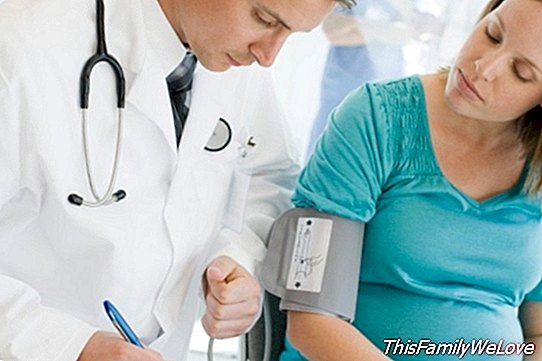Eating the placenta after birth has no known benefits

From time to time, certain habits of life or food become fashionable because celebrities carry them out ... but it is important to remember a maxim: that a woman who appears on television or in magazines does not mean that she is healthy. And precisely on that he wants to alert a new investigation: eating the placenta after birth is fashionable, but It has risks that are still unknown.
It's easy to think of celebrities who have "praised" the benefits of taking your own placenta after giving birth: Koutney Kardashian, for example, has talked about it on the Internet, where you can find many articles that talk about this practice and how good it is for mothers ... without sustaining anything in scientific articles.
The fashion of the placentofagia
Eating placenta is known as plague and, due to the fashion that it has entailed, a team of researchers from Northwestern University in the United States have developed a study in which they have reviewed ten other scientific articles that have been published on this subject.
After this work, they have come to the conclusion that there is no information of animals or humans that sustains the claims that say take placenta (in whatever form) protects against postpartum depression, reduces pain after pregnancy, increases energy, helps breastfeeding, promotes skin elasticity, improves maternal bonding or replenishes iron in the body.
Not only are there no claims to sustain such beliefs scientifically, but rather there have been no studies examining the risks of placental ingestion, a membrane that acts as a filter to absorb and protect the developing fetus from toxins and contaminants, according to experts.
The dangers of taking the placenta
"Our feeling is that women who choose plague pharyngia are willing to ingest something without evidence of its benefits and, more importantly, of their potential risks to themselves and their children, "says Crystal Clarck, lead author of the research, which has been published in the June issue of the journal Archives of Women's Mental Health.
In this sense, Clarck, who is an assistant professor of psychiatry at the university, says that although there are a lot of subjective reports of women who perceive benefits, "There has not been any research that analyzes the benefits or risk of ingesting the placenta"" Studies in mice are not translatable into human benefits, "he stresses.
Moreover, the expert mentions a detail of vital importance: "there are no regulations on how the placenta is stored and prepared, and the dosage is inconsistent"In other words," women do not know what they are ingesting ", which highlights the need to investigate in this area.
Talk to the doctor about taking the placenta
According to Clarck, she hopes that this kind of studies will encourage women to talk with their doctors about their plans after childbirth; thus the experts will be able to explain to them what options are those that are supported by science and, thus, guide them in making decisions.
In fact, this is how this teacher was interested in the study of placentofagia: after several pregnant patients asked her if it was true that taking the placenta after childbirth worked as an antidepressant medication. She, who did not know much about the subject, began to investigate and discovered thatHis belief was much more widespread than he could have imagined.
Although almost all non-human placental mammals ingest their placenta after childbirth, from this American university they explain that the first documented accounts of women after childbirth practicing plague They are located in North America in the 1970s.
In recent years, the advocates of this practice they have popularized their benefits for health, which has made many women consider it an option for postpartum recovery. "The popularity has skyrocketed in recent years," says the lead researcher.
Even so, he remains alert: "Our feeling is that people They are not taking this decision on the basis of science or talking to doctors. Some women are doing this based on news, blogs and websites, "he concludes.
Angela R. Bonachera




